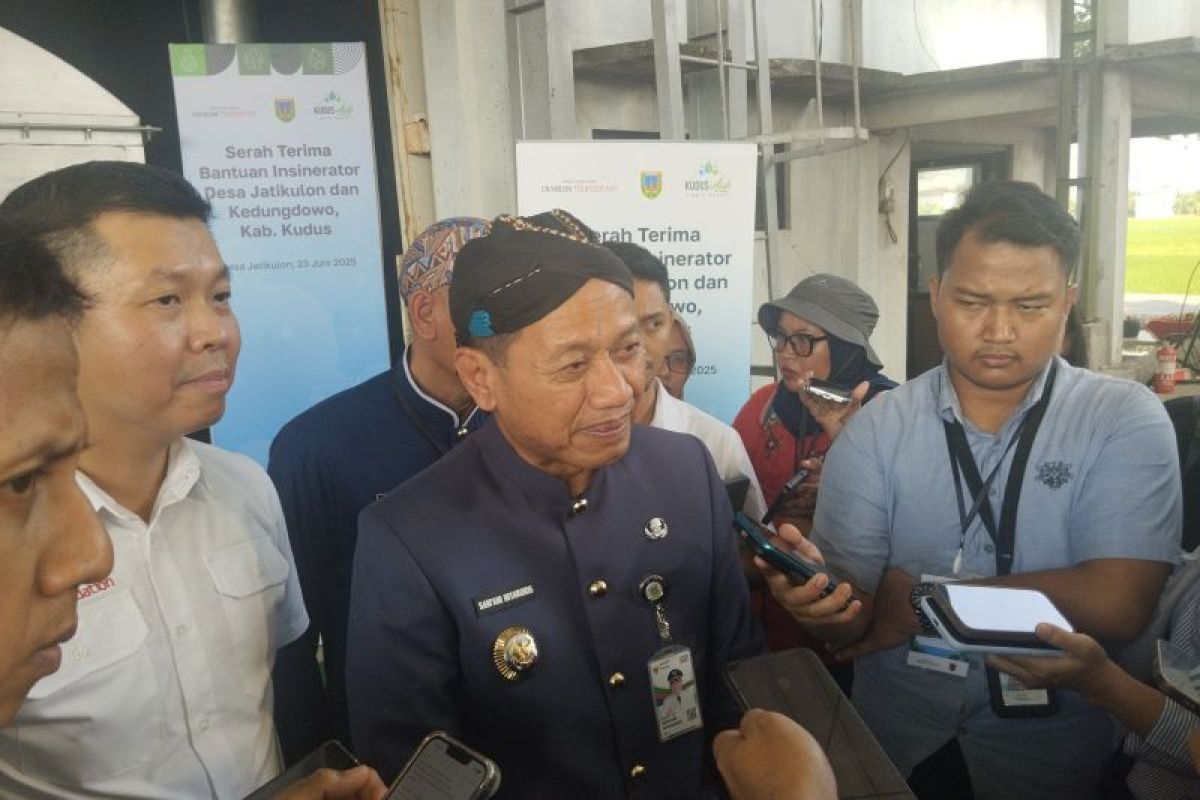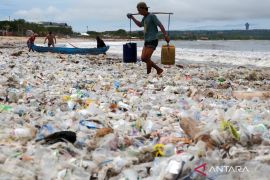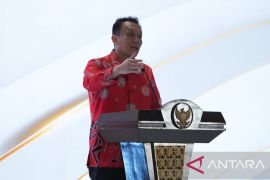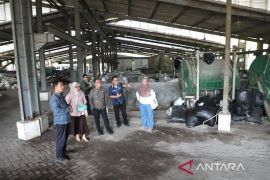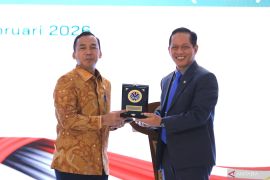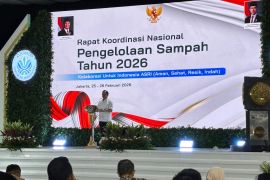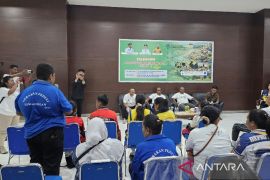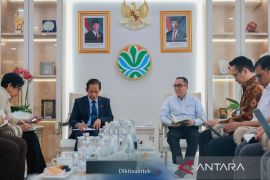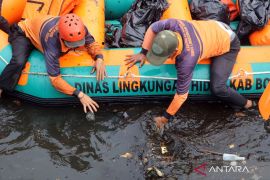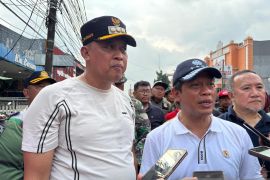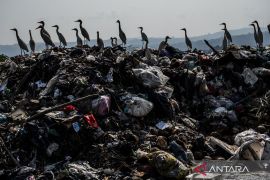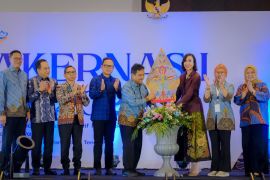“Managing waste is a shared responsibility. Civil servants and social assistance recipients must sort waste from home,” he said during the handover of two incinerators from Bakti Lingkungan Djarum Foundation (BLDF) in Jati Kulon Village, Kudus, on Monday.
He urged each village to process waste independently, turning organic waste into compost and sorting inorganic waste into recyclable and residual waste.
“Residual waste will be destroyed using the incinerator, ensuring no unmanaged waste,” he added.
The district head emphasized that Kudus, which promotes the slogan Asik dan Resik (Pleasant and Clean), should be a model for waste management, especially with private sector support, like from the BLDF, which processes 50 tons of organic waste daily.
The BLDF also provides incinerators for inorganic waste.
“These incinerators will also help dispose of medical waste that could spread disease if left untreated,” he added.
Meanwhile, BLDF program director Jemmy Chayadi said that incinerators are only tools, and community participation in waste sorting is essential for effective waste management.
“This is the BLDF’s first incinerator project in a village where residents are fully committed to waste sorting. We hope this becomes a model,” he said, promising to provide two years of operational support for the units in Jati Kulon and Kedungdowo.
BLDF deputy manager Redi Joko Prasetyo said that the incinerators are easy to use, cost-efficient, and produce low levels of emissions, including of CO, SO, and hydrocarbons. The emissions are all within regulatory limits, Prasetyo added.
Each incinerator has a capacity of 350 kg per hour and is equipped with real-time digital monitoring to support transparency and evaluation.
Jati Kulon village head Hery Supriyanto said that all households in the village are sorting waste at home, with 100 percent of the waste now being processed.
While the organic waste is collected by the BLDF, the inorganic waste generated by the village is handled by a village-owned enterprise (BUMDes).
“Every household pays a monthly waste fee of Rp20 thousand --- Rp18 thousand goes to BUMDes and Rp2 thousand to collectors,” he said.
He added that a planned Rp100 million grant from Kudus Regency in 2026 for villages managing waste independently will be used to expand waste facilities and purchase a plastic shredder.
Related news: Need joint action to tackle plastic waste: minister
Related news: Only 10 percent of waste in Indonesia managed properly: Minister
Related news: Jakarta ready to set example in waste management: ministry
Translator: Primayanti
Editor: Azis Kurmala
Copyright © ANTARA 2025
